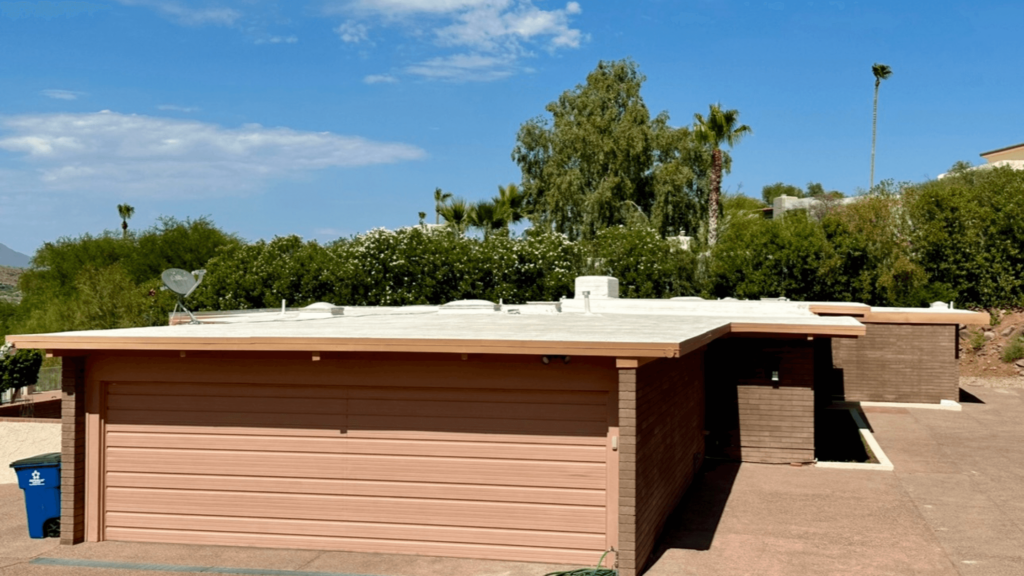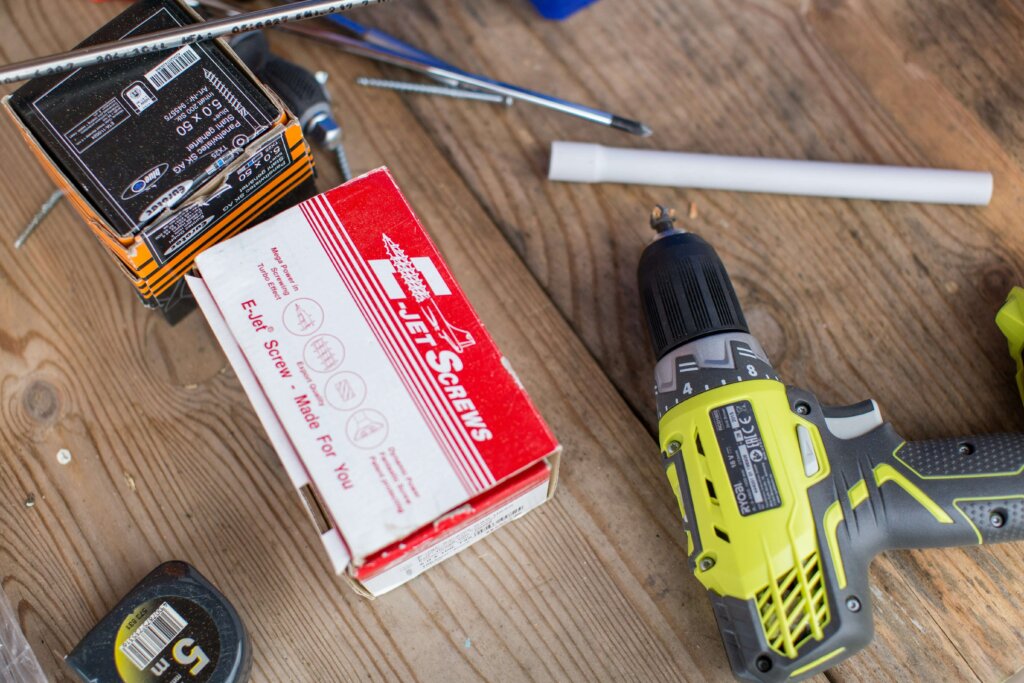Need to Sell an Inherited Property? Patriot Flip Buys Houses Cash. Our years of experience takes the stress out of finding a real estate agent, paying for repairs, and moving everything off the property. Find out what your No Obligation CASH OFFER is worth today!
Selling Inherited Property in Arizona
Depending on the circumstances, selling inheriting property in Arizona could be a major windfall and financial blessing. Or it could be a terrible burden taking away time you don’t have to give. No matter the situation when you inherit a house it comes with responsibilities and potential challenges. Whether you inherited a cozy bungalow in Tucson or a sprawling estate in Phoenix, AZ, understanding the process of selling an inherited property is crucial to maximizing your benefits and minimizing stress.
Before considering to sell inherited property, there’s a few things to note; the current market value, existing mortgage and outstanding debts. Are their liens or clouds on title? You’ll need to figure out the tax implications and if there are capital gains taxes. As well as the property transfer status. Once these key details are sorted, choosing the best way to sell the house will be next. This can be through For Sale By Owner (FSBO), a real estate agent, real estate investor or a iBuyer program.
While the items mentioned above are just the start, you might already be feeling overwhelmed. Inheriting a house can indeed be complex and time-intensive.
Fortunately, we’ve put together a detailed guide on how to successfully sell an inherited house. So make sure to save this page to refer back to when you need it.
Table of Contents
- Understanding the Process of Inheriting Property in Arizona
- What is Probate?
- Types of Probate in Arizona
- 6 Steps in the Arizona Probate Process
- Living Trust
- Transfer of Death Deed
- Factors to Consider Before Selling
- Tax Implications of Inheriting Property in Arizona
- Preparing Your Inherited House for Sale
- 4 Options for Selling an Inherited House in Arizona
- Pricing and Negotiation Tips for Selling an Inherited House in Arizona
- What you Need to Know While Selling Inherited Property
- Challenges in Selling Inherited Property
- Wrapping-Up: Selling an Inherited House in Arizona
Understanding the Process of Inheriting Property in Arizona

Before you can dive into the steps of selling an inherited house in Arizona, the property will need to be in your name. This is defined as the “Status of Home Transfer”. There are three ways to legally own inherited property, with the most common being Probate. Probate is the legal process that takes place after someone dies, this involves validating a will and distributing the deceased’s assets.
What is Probate?
Probate is a court-supervised process that ensure the deceased person’s debts are paid and their assets are distributed according to their will or state law. In Arizona, probate can be complex and time-consuming, often requiring the payment of outstanding debts and taxes before the property can be transferred to the heirs. It’s essential to consult with a probate attorney to understand the specific requirements in your case.
In Arizona, probate is necessary for estates valued at over $75,000 in personal property or real property valued at over $100,000.
Types of Probate in Arizona
Arizona offers three types of Probate:
- Informal Probate: The most common and simplest form, used when there are no disputes among heirs.
- Formal Probate: Required when there are disputes or complications in the estate.
- Supervised Probate: Used in complex cases where court oversight is necessary throughout the process.
6 Steps in the Arizona Probate Process
- File a petition with the probate court
- Notify heirs and creditors
- Inventory and appraise assets
- Pay debts and taxes
- Distribute remaining assets
- Close the estate
The timeline for Probate in Arizona typically takes 6-12 months, but complex cases can take longer.
Living Trust
The most efficient way to inherit property is through a Living Trust. A living trust is a legal document that places assets into a trust for the benefit of designated beneficiaries. The document will also state who manages the property for the family or inheritors. The trustee, designated in the trust documents, manages the property according to the trust’s terms.
In the simplest terms, the parents are the trustor and they delegate someone to be a trustee to sell the inherited assets so the children can divide the sales equally.
This process is smoother and quicker, since the property doesn’t go through probate.
Transfer of Death Deed
A transfer of Death (TOD) Deed, also known as a beneficiary deed, allows property owners to transfer their property directly to a beneficiary upon their death. This method avoids probate and provides the beneficiary with immediate ownership rights, making it easier to sell the property.
Any time you see beneficiary, think recipient. The one receiving the benefit.
Factors to Consider Before Selling

There’s a lot of moving parts when selling an inherited property. It’s not as simple as selling a vacant house or piece of land. You’ll want to consider these key details:
Property Value
Determining the fair market value of your inherited property is the first step. There are a lot of online resources now for finding the estimated value of a property. Before speaking to a professional or a real estate agent, get a strong grasp of the current conditions of the market, what homes are selling for in the neighborhood, and how long it takes for similar homes to sell.
It’s always wise to know your numbers first, to make sure you’re getting accurate information when you reach out to an agent or cash home buyer.
Things to keep in mind, the market value can be influenced by the local housing market, property condition, and other factors.
Outstanding Mortgage and Debts
More often than not, the house you inherited has an existing mortgage or debts. Contact the mortgage company to determine the remaining balance and factor this into your sales price calculations.
Also, check for any unpaid bills, property taxes, or liens that could affect the sale.
Once you can add up the total debts and mortgage balance, you’ll start to get a clear picture of how much you’ll earn or if you’ll owe money on the sale of the property.
Number of Inheritors
Another significant factor is the number of family members inheriting the house. If there is more than one inheritor, all parties must agree on selling the house. It’s important to have clear communication and decide who will handle the sales process. Disagreements are common and can be resolved with the help of a mediator or attorney if necessary.
Here’s Ten mediators who handle family mediation in Arizona.
Tax Implications of Inheriting Property in Arizona
Selling an inherited property can have significant tax implications, including inheritance tax and capital gains tax. Luckily, Arizona doesn’t have an inheritance tax but you may be subject to federal estate taxes.
Understanding the tax implications is crucial to making informed decisions about selling the property. Here are the general tax categories:
Federal Estate Tax

Good news: Most inherited properties in Arizona won’t be subject to federal estate tax. As of 2024, the federal estate tax exemption is $13.61 million per individual or $27.22 million per married couple, meaning only estates valued above this amount will owe federal estate tax.
Arizona Estate Tax
As stated above, Arizona does not have a state estate tax, nor does it have a gift tax. This means you won’t owe any estate taxes to the state of Arizona when you inherit property.
***Note: According to SmartAsset.com “If you have a loved one who lives in another state, however, you should check the local laws. Pennsylvania, for instance, has an inheritance tax that can apply to out-of-state heirs.” ***
Capital Gains Tax
When you sell an inherited property, you may owe capital gains tax on any profit you make. However, inherited property benefits from a “stepped-Up Basis“, meaning the property’s tax basis is adjusted to its fair market value at the time of the owner’s death. This can significantly reduce your capital gains tax liability.
Property Taxes
As the new owner of the inherited property, you’ll be responsible for ongoing property taxes. Be sure to budget for these expenses if you plan to hold onto the property for any length of time. Arizona’s property tax percentage is 0.63%.
Reporting the Sale of Inherited Property
According to the IRS, selling an inherited property should be reported as taxable income. Here’s the instructions from the IRS website.
Preparing Your Inherited House for Sale
Once you’ve navigated the three options for taking ownership, figuring out remaining debts, and understanding the tax implications, it’s time to prepare the home for sale.

Cleaning and Sorting Personal Belongings
One of the most emotionally challenging aspects of selling an inherited house is dealing with the deceased’s personal belongings. Take your time with this process, and consider enlisting the help of family members or a professional estate sale company.
Here’s Yelps top ten estate sales companies in Arizona.
Hold a Garage Sale
If you decide to not use a professional company to handle the estate sale, you can hold a garage sale yourself. After sorting through the personal belongings, you post signs for your garage sale to drive traffic to the property to sell the items you’re not keeping. This can be a cost effective approach to clearing the house to make it more appealing to potential buyers.
Here’s the top ways to hold a successful garage sale.
Assess Necessary Repairs
Inherited houses often need some work before they’re ready for the market. Conduct a thorough inspection to identify any necessary repairs or updates. Focus on issues that could deter buyers or lower the home values, such as:
- Roof Problems
- Plumbing or electrical issues
- Structural Concerns
- Outdated kitchens or bathrooms
Deciding on Renovations
While major renovations can increase a home’s value, they’re not always necessary or cost-effective when selling an inherited property. Consider your budget, timeline, and local market conditions when deciding which improvements to make. The overall goal is to improve the curb appeal. You don’t want the home to be an eyesore in the neighborhood, this is a sure fire way to get lowball offers.
Waiting for the Home to Go Through Probate
As stated earlier, if the deceased didn’t leave a legal will, your inherited house must finish going through probate before the home can be sold. This generally is the longest period of the entire process.
Make sure to stay in communication with your probate attorney or estate planner.
4 Options for Selling an Inherited House in Arizona
Real Estate Agent
Hiring a real estate agent can help you get the best price for your inherited house. Agents have market knowledge, negotiation skills and marketing tools to attract buyers. They can also handle the paperwork and legal aspects of the sale.
Pros:
- Expertise in pricing and marketing.
- Handling of negotiations and paperwork.
- Broad network of potential buyers.
Cons:
- You cover closing costs and repairs.
- Commission fees, (typically between 5%-6% of the sales price).
Real Estate Investor
Selling to a real estate investor, such as Patriot Flip can be a quick and convenient option, especially if you need to sell fast of the property has significant repairs.
Pros:
- Quick sale (often within days).
- No need for repairs or cleaning, and buy houses as-is.
- Cash Offers.
- In most cases, there’s no need to remove personal belongings and you can sell from out of state.
Cons:
- Lower sale price.
For Sale By Owner (FSBO)

Selling the property yourself can save on commissions fees, but requires more effort and expertise in real estate transactions.
Pros:
- No commission fees.
- Full control over the sale process.
Cons:
- Handle all contracts and negotiations.
- Present for showings and open houses.
- Handle all marketing and costs associated.
- Requires knowledge of the real estate market and legal procedures.
iBuyers
iBuyers are companies that use technology to make instant cash offers on homes. This method is convenient and fast but often comes with fees and a lower sales price.
Pros:
- Fast Cash Offers.
- Convenience of timeline transactions.
Cons:
- Fees deducted from sale price.
- Lower Offers than market value.
Pricing and Negotiation Tips for Selling an Inherited House in Arizona
Once probate and the will have been figured out and you have the green light to sell the property, the actual process of selling an inherited property is very similar to selling a typical house. Yet, you can separate yourself from the competition by following these tips and tricks for getting the property sold.
Here are some tips to help you set a price and negotiate offers for your inherited property:
Manage Expectations
In most cases, homes sell slightly under the asking price, especially when in a buyers market. According to Realtor.com, we are in a strong buyers market as of July 2024.
Chances are that offer price will come in under the asking price and you will negotiate with buyers to get the highest offer possible. This is where having a skilled real estate agent will help you the most throughout the entire sales process.
Avoid Overpricing
The smartest tatic a homeowner could implement is to slightly price the home under market value to create a buying frenzy. This will ensure the highest probability of getting multiple offers on the property, giving you the seller all of the leverage.
Overpricing a home is a sure way to scare away buyers and for your property to become a stale listing. As soon as you add weeks to the ‘days on market’, the value of the home will only continue to come down in the eyes of the buyer.
Don’t Undersell the Property

Inheriting a house from a relative can come with emotional attachments. Of course, you will want to get the highest price possible to reflect the sentimental value you have for the property. However buyers don’t carry the same emotions you have for the home and they will most likely shoot for the lowest price.
In some situations inheritors will change the price of the home to meet the price they believe buyers can afford. Often times the seller will settle for a less than ideal price far below market value. Don’t do this.
At this point an appraisal or comparative market analysis has be done on the house giving you an estimated price range. The price you accept needs to be based on the fair market value, somewhere between the minimum and maximum asking price.
Think Before Making Seller Concessions
Before crediting or giving money back to the buyer, evaluate the demands carefully. Seasoned buyers are experts are negotiating the price down, sometimes far below market value. Buyers will come up with reasons, sometimes unjustified for why they need money back at the closing table or they won’t buy the home from you.
This is where consulting a with a real estate professional can help to make sure the demands have merit or if they are merely taking advantage of the situation to to get a lower price.
Don’t Make Hasty Decisions
Getting an inherited house sold is tiresome. After going through a lengthy probate process, clearing out a home, and dealing with the passing of a loved one, it can be tempting to take the first offer.
Understanding whether multiple offers on a home like yours are common is important when aiming for the highest price possible. Having a grasp of the current market or hiring a real estate professional can help.
In a slow market, accepting a solid first offer might make sense. However, in a seller’s market, receiving multiple offers is not uncommon, and you’ll want to consider your options to ensure you get the most favorable offer.
Practice Negotiation Tactics
If you’re selling your inherited house as a For Sale By Owner (FSBO), or are using a flat fee real estate platform, you’ll be on your own for the negotiations. Assuming you don’t have a background in sales or real estate, you’ll want to take the time to brush up on tactics for successfully negotiating a deal.
For example, “Don’t be afraid to Negotiate on factors beyond price”, is a tip FastExpert.com gives in their 23 Negotiation Tactics Realtors Wish they Knew.
Having an understanding of basic tactics could equal thousands more dollars in your pocket.
What you Need to Know While Selling Inherited Property
After getting through the legalities of taking title and figuring out the inheritors, you’re most likely searching google, “what should I expect while selling my inherited property”? As with any home listed on the market, it can sell within a couple of days or take a couple of months. Here’s some common factors to expect during this time period:
Continued Financial Obligations

Often homeowners will stop making mortgage payments because they have a home listed on the market, don’t do this. This could have your home wind up in foreclosure, especially if the property takes time to be sold. You’ll want to account for utility bills such as, water, sewer, garbage, electric, and cable.
In fact, it’s required to keep paying utilities while a home is listed on the market, so potential buyers can conduct their full due diligence of the condition of the home.
If the financial demands are to much, consult with the other inheritors to come up with a strategy for covering the ongoing expenses. The proceeds are expected to be split equally and so should the expenses to get the property sold.
Buyer Showings and Open Houses
One of the more essential aspects of having a home listed on the market is making it available to interested buyers, such as open houses and showings. A buyers agent will schedule a showing or they will come to a pre-scheduled open house. The home will need to be well maintained, so it is “show ready” at all times.
First impressions are everything in real estate. The buyer who could have made an offer might decide not to if the house is a mess. Keep your home in tip-top shape to ensure buyers don’t have a reason to lowball you or not make an offer at all.
Home Inspections
When selling a property on the market, a home inspection is customary. In states like California, conducting a pre-inspection of the home is common practice. In Arizona, it’s the opposite, the buyer will pay for their own home inspection during the due diligence phase of escrow.
Home inspections will look for potential issues like a cracked foundations, sewer lateral misalignment, leaking roof or failing electrical.
You may opt for a pre-inspection so you can make sure repairs are completed before the market can be made aware of the issues.
If you opt to not complete a pre-inspection you’ll be exposed to hidden issues, that will be factor into the buyers offer or they will request that you, the seller fix it during escrow.
Either way, knowing the information up front will only help you to have more leverage when dealing with buyers because you are able to factor the issues into your asking price.
Conflicts
Dealing with any potential ownership issues among the inheritors before putting the property on the market will serve you best. As well as addressing who does or doesn’t want to sell will greatly improve your odds of a successful home sale.
If buyers sense that their are disagreements among the sellers, they can possibly factor this into their offer price, increasing your odds of getting a lower offer.
This is especially true when there are other assets involved. Some heirs may want to sell everything, while other heirs want to keep items from being sold.
Speaking with your estate planner and attorney will help to answer these questions before hand. You may also want to speak with a title company to ensure there are no hidden issues that could keep the property from closing escrow.
Challenges in Selling Inherited Property

Selling an inherited house comes with its own set of challenges and it can be a trying time. Especially if you’re dealing with estranged family members or family you have a hard time communicating with. You will have earned the sale when day comes.
Here’s some items to keep in mind when dealing with the challenges of selling an inherited property:
Probate Delay
Even if you’ve cleared out the property, addressed who the inheritors are, and completed everything you believed needed to be done, you will not be able to sell the home yet. If the property is kept in probate, the sale cannot proceed.
Unfortunately, probate can take years for a court to decide what to do with the estate.
This can be a benefit, if a family member needs somewhere to live and needs to remain in the home. Legal title transfer can’t take place while the property is in the probate process.
Finding Equal Distribution of the Estate and Assets
For instance, if the deceased’s personal will didn’t state how the value of estate would be divided among the heirs, disagreements can arise.
Let’s say that one of the heirs spent the last five years taking care of the deceased before they passed away, they may feel they are entitled to higher percentage of the distribution. Especially if there are multiple heirs, this could lead to conflict.
Emotional Attachments
Sorting through personal belongings can be emotionally taxing. There could be guilt over discarding the belongings and deciding what to keep and what not to keep.
It’s best to be as logical as possible and not overwhelm yourself in this situation. Speaking to professional can be beneficial when dealing with the grieving process.
Here’s a grief counselor in Arizona that could help with sorting out your thoughts during this tough time.
Underwater on the Inherited Property

This could be the worst case scenario, as now you’ll have to figure out how to address a property that has no value on paper. In real estate, ‘underwater‘ means the worth of the property is less than the current mortgage or loan that was taken out on it.
You’ll want to consult with the bank or lender carrying the loan on the property to discuss options.
Repairs and Maintenance
Inherited properties may require significant repairs, adding to the cost and effort of selling. As stated earlier, getting a home inspection before selling the home on the market will address the full scope of work needed to repair the home. If the previous owner neglected to maintain the home, the inheritors will have to cover the cost of repairs. Home repairs are expensive and can equal to thousands of dollars.
The best way to avoid paying severe repair costs at this time, is to request a cash offer from a reputable We Buy Houses company. Cash buyers purchase homes as-is, meaning the seller (inheritor) doesn’t need to open their pocket book or ever think about picking up a hammer.
Wrapping-Up: Selling an Inherited House in Arizona
Selling an inherited house can be complex, it’s a lengthy process you must go through before the actual sale takes place.
After reading through this detailed guide, we hope that you have a better understanding of the entire process and are more confident to begin your steps of selling your property.
If you need help selling inherited property, connect with us at Patriot Flip! We can provide you with an all cash offer within 24-hours no matter what part of Arizona your inherited property is located. Reach us at 602-625-0806 to get a no obligation quick cash offer or get started now by filling out the form below!
- Short Sale vs Foreclosure – What’s the Difference in Phoenix?
- Understanding Closing Costs in Arizona
- How to Get Rid of Bad Tenants in Arizona
- Listing Expired: How Can I Sell My House in Arizona?
- Selling a House in Probate Arizona [House Probate Sale]
Cash Home Buyers Arizona

Author: Mark St. Peter
Mark St. Peter is a real estate professional with extensive experience in real estate investing, real estate sales and building businesses. He’s covered real estate across northern California, as well as Arizona.
Mark founded Patriot Flip to assist homeowners looking for alternative solutions for selling a property, rather than going the traditional route of paying commission, hidden fees and long waiting times.

